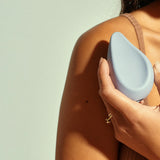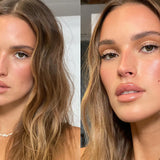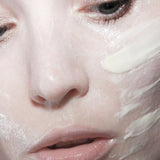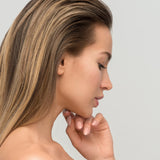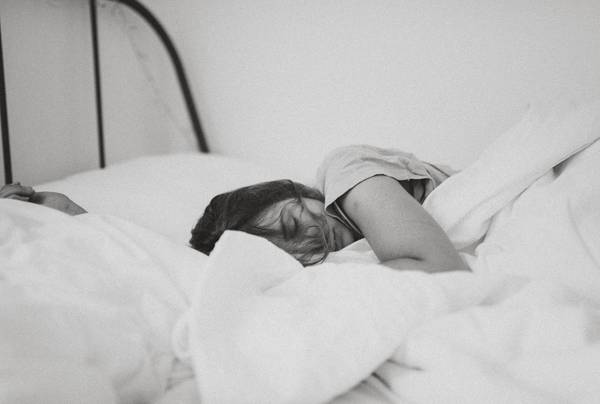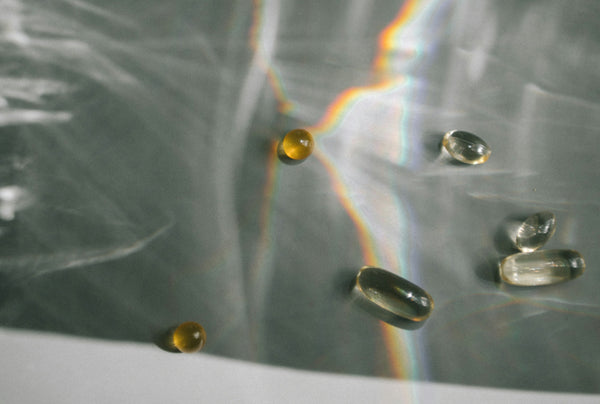We all know the term ‘beauty sleep’ but do you really know why it’s called that? Sleep is essential to rest and function at our best, but there’s more to it. Sleep is actually an integral part of your skincare routine.
We spoke with Australia’s leading sleep expert, Olivia Arezzolo to find out why a good night’s sleep is the secret to great skin.
The beauty benefits of sleep
Sleep doesn't just keep the dark circles away. While you switch off, your skin switches on to repair mode, working to regenerate cells and accelerate the repair process.
These are just some of the good things that happen to your skin while you snooze:
FIGHT THE SIGNS OF AGEING
“Sleep is critical for collagen synthesis,” says Arezzolo, “it’s the key to your skin looking supple, smooth and youthful! Think fewer fine lines and wrinkles.” According to research conducted by the Department of Medicine at the University of Chicago, 70% of growth hormone - the catalyst for collagen production - is produced in slow wave (deep) sleep. “So with deep sleep comes growth hormone, and then comes collagen,” explains Arezzolo.
REPAIR SUN DAMAGE
“Similarly, a clinical study found good sleepers have a 30% higher skin recovery rate after UV exposure, compared to poor sleepers. What this means is that you have greater building blocks and skin cell turnover to combat any signs of pigmentation and discolouration caused by the sun,” notes Arezzolo.
REDUCE REDNESS
“Finally, evidence also shows lack of sleep results in a 20% increase in inflammation, which can show up as red, blotchy, and irritated skin.”
If you didn’t already love your sleep, we bet you do now!
“Aside from all of the above, expect an extra level of radiance and a year-round glow!”
Olivia Arezzolo, Sleep Expert
A note about naps
Now, before you go squeezing in some extra shut-eye any chance you get, Arezzolo notes that sadly naps don’t work in the same way. “Napping keeps us in shallow stage 1+2 NREM sleep, whereas collagen synthesis occurs when we enter stage 3+4 NREM sleep, also known as slow wave sleep.”
Is 8 hours of sleep still the gold standard?
The majority of the adult population needs seven to nine hours of rest, says Arezzolo. “The specific number for you, however, depends on an array of external factors including how stressed you are, how sleep deprived you are, and your genetics.”
The effects of a bad night’s sleep on skin
Many of us are all too familiar with the classic signs of not enough sleep. “Without those critical seven to nine hours, your complexion begins to look a little lacklustre and lifeless,” notes Arezzolo. But that’s not all. Did you wake up with a few breakouts? Your lack of sleep could be to blame. “Inadequate sleep tends to raise cortisol levels (the stress hormone), which often triggers inflammation, acne, and increased sensitivity.”
Is *too much* sleep a bad thing?
“Like too little, too much sleep has the same effect: increased inflammation. A clinical study found women sleeping only seven hours, compared to women who were sleeping longer than nine, had 44% less inflammation (in the face and body),” shares Arezzolo. “For your skin, inflammation shows up as blotchy, red and irritated skin, right through to acne and pimples.”


A sleep expert’s tips for better sleep
“I have a signature bedtime routine which I swear by, and it’s proven to be a game-changer for my private clients, too,” reveals Arezzolo, who let us in on her winning formula:
1 / A pre-bed digital detox
“Block out blue light at least two hours before bed. An academic paper found regular room light from dusk to dawn suppressed melatonin by 71%. Less melatonin means you find it harder to fall asleep and stay asleep.”
“Have a ‘goodnight phone alarm’ set for 60 minutes before bed, reminding you to disconnect from all tech and truly unwind.”
Olivia Arezzolo, Sleep Expert
2 / Let lavender lull you to sleep
“Take lavender capsules or use lavender aromatics. A clinical trial found lavender improved sleep quality by 45%, and reduced anxiety by up to 59%.”
3 / Shower + skincare
“Have a shower and indulge in your nightly skincare routine. The drop in core body temperature as you emerge from a steamy shower into a cooler bathroom is a cue for melatonin synthesis. Use this down-time (instead of your nightly scroll) as an opportunity to practice a relaxing skincare routine, too. At the moment I’ve been loving Edible Beauty’s new Sleeping Beauty bundle which includes their overnight purifying mousse mask, plus a rose quartz crystal sleeping mask. This act of self-care forces me to focus on what’s truly important each day: feeling and looking my best.”
4 / Relax with magnesium
“Have a magnesium-based sleep supplement to relax your mind and body ahead of falling asleep. A clinical trial found magnesium could also reduce anxiety by up to 31%.”
5 / Unwind with a book
“Read a book (a physical one - not one on your phone!). A study by University of Sussex found reading could reduce stress by 68% - and the anti-anxiety effects eventuated in just six minutes of adding this to your nightly routine.”
A-BEAUTY TIP: Swap out your cotton pillowcase for a silk pillowcase. Not only will you feel pampered the minute your head hits the pillow, the smooth silk surface helps reduce lines and wrinkles and is less absorbent than many other fibres, so it keeps your skin’s moisture and expensive face and hair products where it belongs - on your face and hair.
CREDENTIALS
- Unsplash / @unsplash
01 Oct 2021
